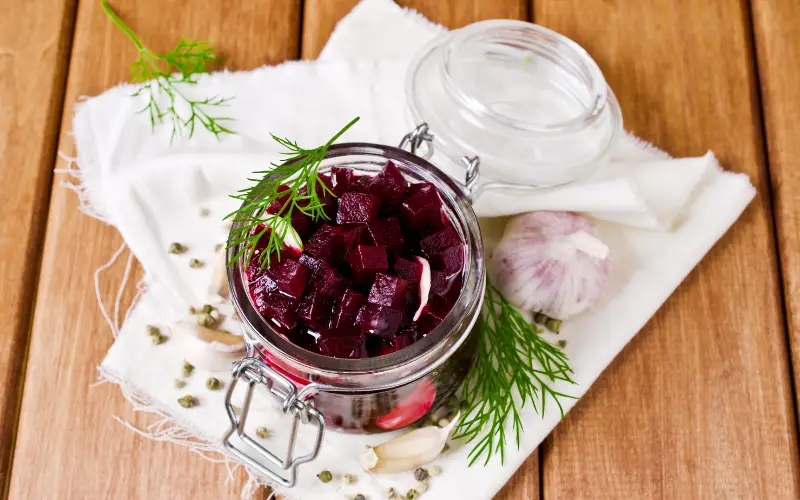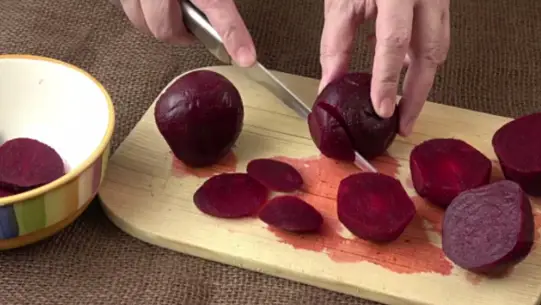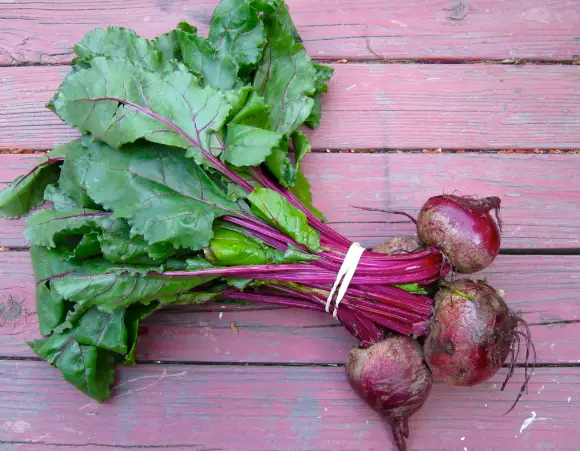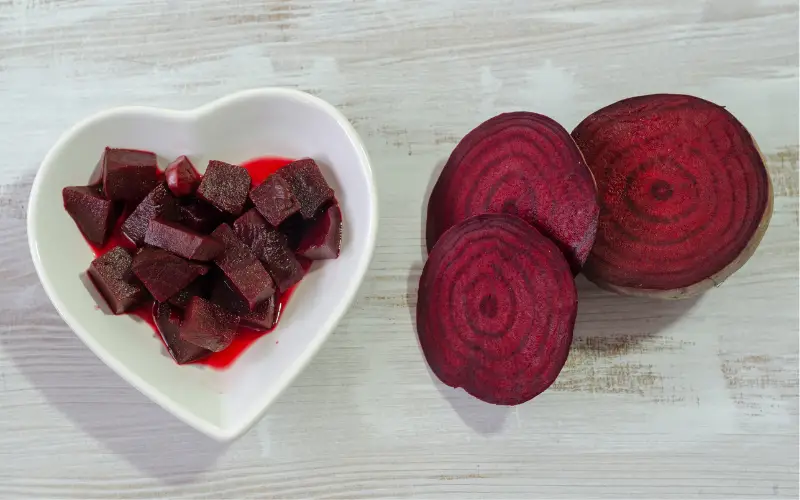Canned sliced beets provide a convenient, ready-to-use alternative, usually pre-cooked and pre-sliced, ideal for those on the go. On the other hand, fresh beets retain their natural texture and taste, allowing for versatile applications across various recipes. While nutritional content may vary slightly between these two forms, both remain an excellent sources of dietary fiber, folate, manganese, and other vital nutrients. The decision between canned sliced beets and fresh ones ultimately depends on individual preferences and lifestyle needs.
What Are Canned Sliced Beets?[/su_heading]

Canned sliced beets are a form of preserved beets that are cooked, sliced, and then sealed in a can with a liquid (typically water, sugar, and salt) to maintain their freshness. This canning process gives the beets a much longer shelf life than fresh beets, making them a convenient choice for many individuals and families.
Canned sliced beets are ready to eat straight out of the can or can be added to various dishes for extra flavor and nutrients. They can be used in salads, soups, and other dishes. While their taste and texture differ somewhat from fresh beets due to the canning process, they still provide essential nutrients like dietary fiber, folate, and manganese.
What Are Fresh Sliced Beets?[/su_heading]

>Fresh sliced beets are simply beets purchased naturally, typically from a grocery store or farmer’s market, and then sliced at home. They are uncooked, without additives or preservatives, and provide a crisp texture and earthy flavor often lost in the canning process. The sliced fresh beets can then be cooked in various ways, including boiling, roasting, or steaming, and used in various dishes like salads, soups, or sides.
>Fresh sliced beets retain all their natural nutrients, including dietary fiber, potassium, iron, and vitamins A and C. Moreover, they are typically lower in sodium than canned beets, as they contain no added salt. However, fresh beets require more preparation than canned beets, including cleaning, slicing, and cooking.
Canned Sliced Beets vs Fresh[/su_heading]
Varieties: Canned beets mainly come in the standard red or purple variety, and you can find them in different forms like sliced, crinkle-cut, whole, grated, or baby beets. Fresh beets, however, offer more variety, including red/purple, golden, striped, cylindra, mangel-wurzel, and sugar beets.
Nutrition: Canned beets are nutritionally on par with fresh beets but are typically higher in phosphorus, folate, and potassium. Fresh beets contain around 35 calories per serving and offer nutrients like protein, carbohydrates, fiber, sugar, iron, manganese, vitamin B2, and betaine.
Flavor: Canned beets have a flavor identical to fresh beets, while fresh beets are slightly sweeter, with a more complex depth of flavor and a prevalent fresh earthiness.
Shelf Life: Canned beets can last up to 2 years when stored correctly, whereas fresh beets generally stay fresh for up to 2 weeks when refrigerated.
Versatility: Both canned and fresh beets are versatile and can be used in various dishes. However, canned beets can’t be consumed raw for their full nutritional value, unlike fresh beets.
Availability: Canned beets are available all year round. Fresh beets are also available all year round, but their best harvest times in the US are in June, September, and October.
Affordability: Canned beets are generally around $1-3 per 15-ounce can. Fresh beets usually cost around $2.50-$3 per pound.
Considerations: For canned beets, it’s advisable to avoid those with artificial sweeteners and preservatives and to look for BPA-free certification on each can. It’s recommended to buy fresh beets only when you plan to use them immediately to ensure their freshness.
Advantages Of Canned Beets
- They Still Provide Antioxidants: Despite the canning process, canned beets retain many antioxidants, including betalains, which have anti-inflammatory and detoxification properties. These antioxidants help to protect the body from free radicals, potentially reducing the risk of certain chronic diseases.
- They’re A Good Source Of Nutrients: Canned beets are rich in essential nutrients like phosphorus, folate, and potassium. They also provide a good source of iron and vitamin C, helping to support overall health and well-being.
- An Easy Source Of Fiber: Beets, including the canned variety, are a great source of dietary fiber. This can help promote healthy digestion, reduce the risk of chronic diseases like heart disease and diabetes, and help maintain a healthy weight.
- They Last: Thanks to the canning process, canned beets have a much longer shelf life than fresh beets. You can keep them in your pantry for up to two years, ensuring you always have a nutritious vegetable.
- They’re Practical: Canned beets are pre-cooked and ready to eat, making them a convenient and time-saving option. They can be added to various dishes straight from the can, making them a practical choice for quick and easy meals.
- They’re Low In FODMAPs: FODMAPs are carbohydrates that can cause digestive discomfort in some people, especially those with irritable bowel syndrome (IBS). Canned beets are low in these compounds, making them a good choice for people on a low-FODMAP diet.
Disadvantages Of Canned Sliced Beets
While canned beets offer many benefits, there are a few potential downsides that are worth considering:
- They’re Often High In Sodium: Canned beets often contain added salt to enhance flavor and increase shelf-life, which can result in high sodium content. Consuming too much sodium can increase the risk of high blood pressure and other health problems, especially in individuals who are sensitive to salt.
- May Be Contaminated From The Can: Some cans are lined with a chemical called Bisphenol A (BPA), which can leach into the food. Studies have linked BPA exposure to various health issues, including hormone disruption, heart problems, and increased risk of certain types of cancer. However, many manufacturers now use BPA-free cans, so it’s worth checking the label.
Advantages Of Fresh Sliced Beets[/su_heading]
Fresh sliced beets offer several advantages, which include:
- Nutrient-Rich: Fresh beets contain essential nutrients, including dietary fiber, potassium, iron, and vitamins A and C. They are also rich in folate and manganese.
- Low in Sodium: Unlike canned beets, fresh beets have no added salt, making them a better choice for those monitoring their sodium intake.
- Versatility: Fresh beets can be consumed raw or cooked, providing various culinary applications. They can be sliced and added to salads for a crisp, sweet touch or cooked and used in various dishes.
- Retains Natural Flavor and Texture: Fresh beets retain their natural, earthy flavor and crisp texture, which can be lost in the canning process.
- Lower Risk of Contaminants: Unlike canned beets, fresh beets don’t risk contamination from the can, such as from BPA (Bisphenol A).
- Dietary Preferences: Fresh beets can better cater to specific dietary preferences or restrictions, such as raw, vegan, or low-sodium diets.
- Can be used for juicing: Fresh beets are excellent for making nutrient-packed beet juice, a popular health drink. The same can’t be done as effectively with canned beets.
Disadvantages Of Fresh Sliced Beets
While fresh sliced beets offer several benefits, they do come with a few drawbacks:
- Short Shelf Life: Fresh beets have a much shorter shelf life than canned beets. They generally stay fresh for up to two weeks when refrigerated and must be used soon after purchase to avoid spoilage.
- Preparation Time: Fresh beets require cleaning, peeling (if preferred), and slicing before they can be used in a dish, which adds to the preparation time. On the other hand, canned beets are pre-cooked and ready to use.
- Inconsistent Availability: Although beets are often available year-round in grocery stores, their peak season is typically in the late summer and early fall. Outside of this time, the quality and availability can be inconsistent.
- High In Oxalates: Like canned beets, fresh beets are also high in oxalates. This can pose a risk for individuals prone to kidney stones, as oxalates can contribute to the formation of these stones.
- Soil Residues: Since they grow underground, fresh beets can sometimes retain residues of soil or sand, even after washing, which may affect the texture or taste of your dishes.
FAQs
Are tops of beets edible?

Yes, the tops of beets, often known as beet greens, are edible and highly nutritious. They are a good source of vitamins A and C, iron, and calcium. You can cook them similarly to leafy greens, like spinach or kale.
Is it bad to eat the skin of a beet?

No, it’s not bad to eat the skin of a beet. The skin of beet is edible and contains beneficial nutrients. However, some people prefer to peel beets because the skin can have a tougher texture, especially if the beets are larger or older. If you choose to eat the skin, wash the beets thoroughly to remove any dirt or debris.
How many beets should I eat every day?
The number of beets you should eat daily depends on your nutritional needs and overall diet. As a general guideline, incorporating a variety of fruits and vegetables into your diet is a good strategy for balanced nutrition. If you have specific health concerns or are considering eating a lot of beets, you may want to consult a healthcare provider or a dietitian.
Are beets best for you raw or cooked?

Both raw and cooked beets have health benefits. Raw beets maintain their full nutrient profile and offer a crunchy texture that can be great in salads. Cooking beets, on the other hand, can enhance their sweetness and make them easier to digest. It’s a matter of personal preference, and you can enjoy beets both ways.
Is it okay to drink the beet water from canned beets?
The liquid in canned beets is generally safe to consume. However, depending on the brand, it can be high in sodium and possibly other additives, so it might not be the healthiest choice, especially for those watching their sodium intake. If you enjoy the flavor and aren’t concerned about the extra sodium, you could use it sparingly in cooking as part of a dressing or sauce.
Conclusion
Canned sliced and fresh beets have their place in the kitchen, each offering unique benefits and some limitations. Canned beets offer convenience, a long shelf life, and retained nutritional value, making them a great option for quick meals or out-of-season needs. Fresh beets offer superior flavor, texture, and nutritional integrity without added sodium. Your choice between canned sliced beets and fresh beets may come down to convenience, dietary needs, preparation time, and personal preference for taste and texture. It’s also worth noting that a balanced diet can include both fresh and canned vegetables, so you can enjoy the benefits of each.

John Hebdon is a food enthusiast, passionate chef, and author of various articles and blog posts related to food and cooking. With a deep love for all things culinary, John’s blog serves as a platform to share his extensive kitchen experiences with a broader audience.
In addition to his culinary expertise, John has a flair for writing and a natural ability to share his passion for food with others. His articles and blog posts are informative, engaging, and packed with practical tips for readers of all skill levels.
As a food enthusiast and writer, John is always on the lookout for new and exciting culinary experiences. Whether it’s trying out a new restaurant, experimenting with a new recipe, or simply sharing a favorite dish with friends and family, John is always eager to explore and share the world of food with others.







